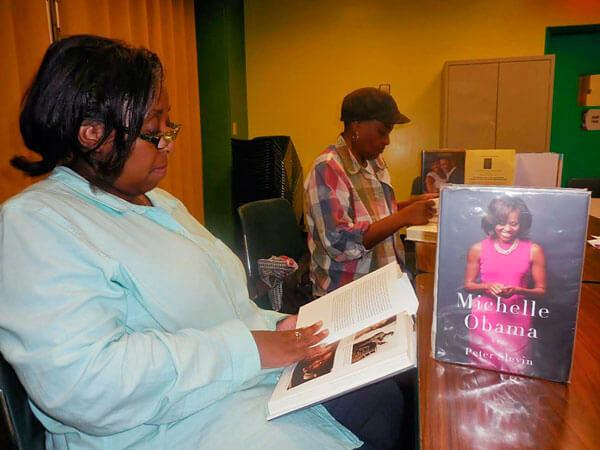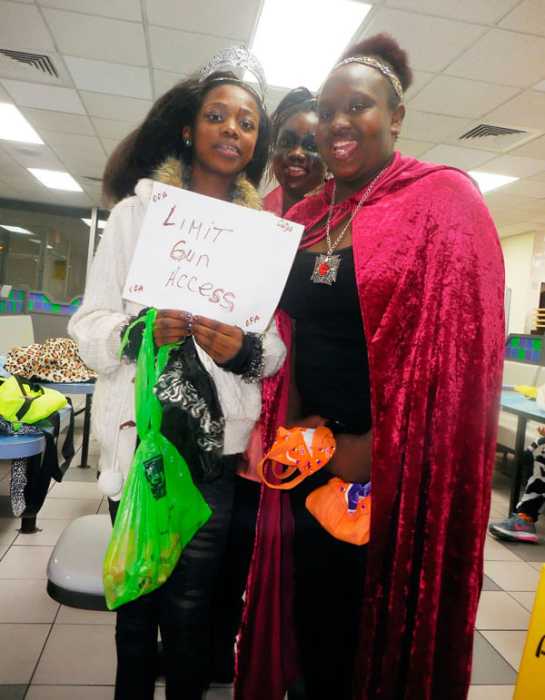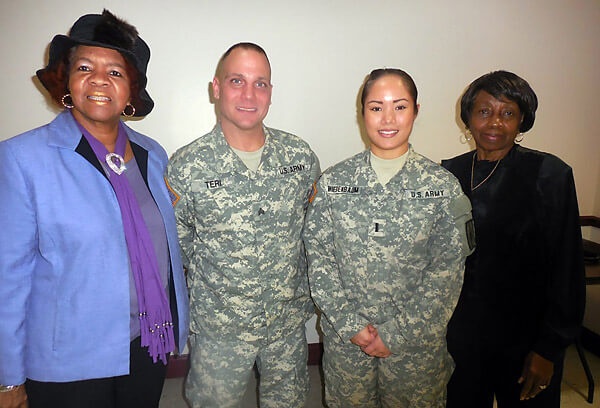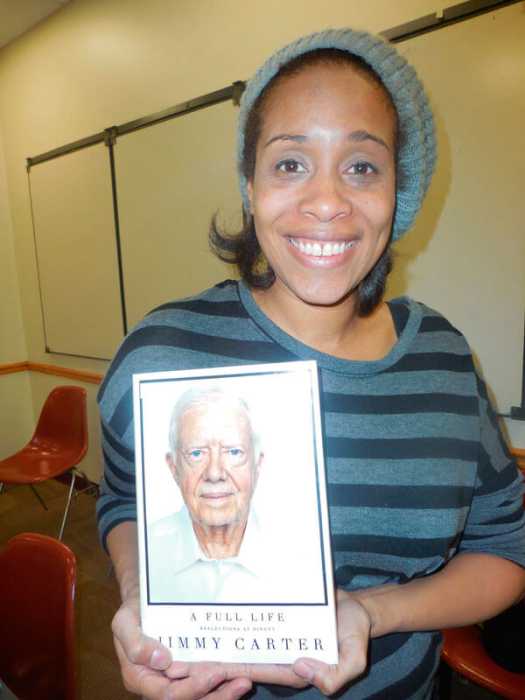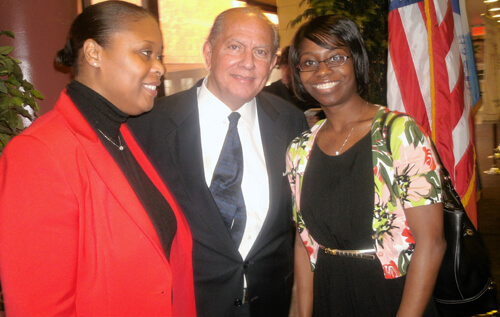Those from the Caribbean, United States and the African continent came to celebrate the accomplished life work of First Lady Michelle Obama at the Laurelton Literary Society at Queens Library in Laurelton, N.Y., recently.
Having read the book, “Michelle Obama A Life,” by Peter Slevin (Alfred A. Knopf New York; 2015), the group comprised of only women, drew their attention to moments in the history-making modern-day first African-American first lady’s challenging life. “Nothing in my life ever would have predicted that I would be standing here as the first African-American first lady,” states Mrs. Obama, in the book. “I was not raised with wealth or resources or any social standardizing to speak of it. I was raised on the South Side of Chicago,” she added.
The group acknowledged Slevin’s book as a compilation of material from sources previously available to the public, specifically two books written by Barack Obama: Dreams from My Father: A Story of Race and Inheritance (New York: Three Rivers Press) and “The Audacity of Hope: Thoughts on Reclaiming the American Dream (New York: Crown Publishers). Despite this fact, and the countless unfair scrutiny of Mrs. Obama — the book recognizes — this intelligent, courageous and beautiful world leader soars as the natural phenomenal woman like the poetic words described by the late Kennedy Center honoree, Maya Angelou, in her poem, “Phenomenal Woman.”
Slevin’s book delicately, without glossy coatings, gives you a picture of the-not-so-easy climb for Mrs. Obama to rise from a working-class background in Chicago to surviving at Princeton University and Harvard Law School, when only one out of 10 blacks in the U.S., under age 25 will graduate from college.
Slevin, a former Washington Post employee, packs and connects history into each stage of Mrs. Obama’s family ancestry — beginning as early as her grandparents’ arrival in Chicago. For instance, excerpts of “Black Boy,”a Richard Wright memoir and Reverend Dr. Martin Luther King Jr.’s nonviolent southern protest movement to Chicago in 1966 are a couple of the placements the author uses to shape Mrs. Obama’s background. To make the past have more of a direct effect, and not a coincident on Mrs. Obama and her family’s life, the author incorporates the reason Mrs. Obama’s brother, Craig Malcolm Robinson, middle name would come from human rights activist Malcolm X.
“Authentic” is the word, the group at one of Queens Library’s 60-plus community branches, used to draw a portrait of Mrs. Obama, as an early achiever participating in scholastic organizations and extra-curricular activities, to cut a pathway to college. This backdrop in life set the stage for Mrs. Obama to give a realistic meaning to life by creating and shaping a plethora of educational, mentoring and health-related programs designed for the young and disenfranchised. Unforgotten, are her initiatives for military families.
Mrs. Obama is welcomed internationally, for many reasons but particularly, because of her ability to feel committed to stand in the walkway of “lighting” to end the “yawning gaps between blacks and whites in household income, home ownership, college completion rates and levels of confidence in the legal system.”
“We know that in America, too many folks are stopped on the street because of the color of their skin,” said Mrs. Obama. “The idea of the country being post-racial would have been laughable were it not so depressing,” the book notes.
The Langston Hughes Library and Cultural Center in Queens will present its 7th Annual Langston Hughes Literary Arts Festival on Saturday, Dec. 5 from 10 am to 5 pm. Featured guests will be Kwame Alexander, Flo Anthony, Donna Hill, Sonja D. Williams, MK Asante, Rochelle Alers, Mary C. Bounds and Renee Daniel Flagler. No admission fee. The event will be held at the Langston Hughes Library and Cultural Center, 100-01 Northern Blvd., Corona, NY 11368.



